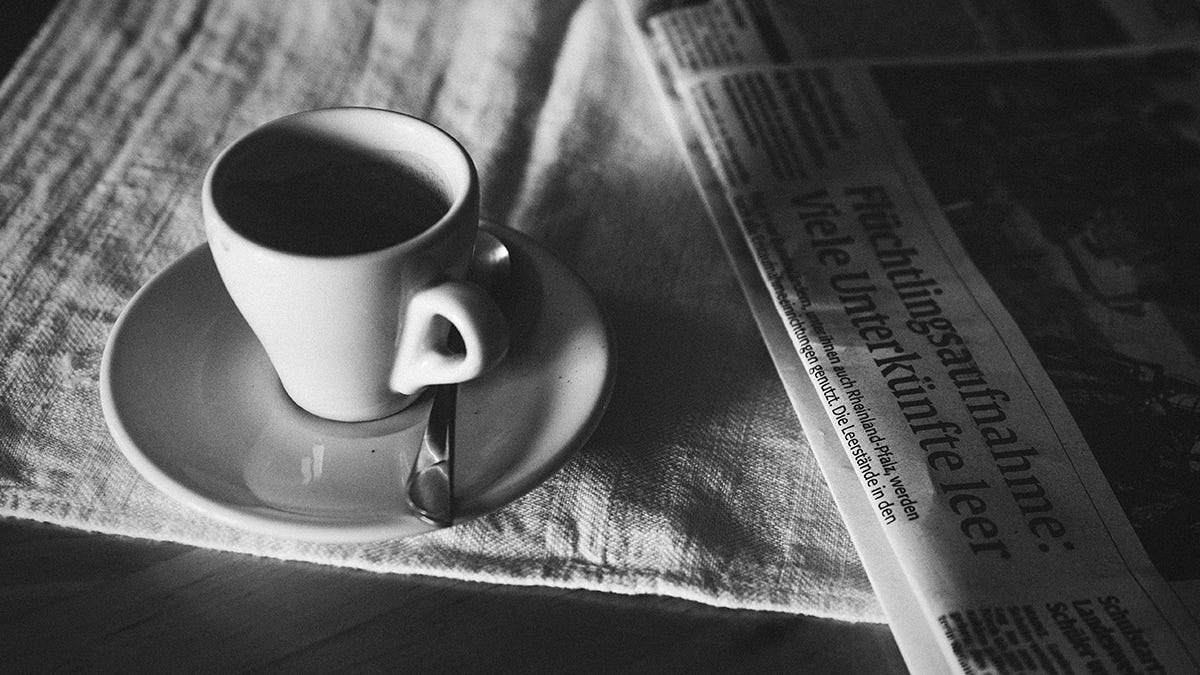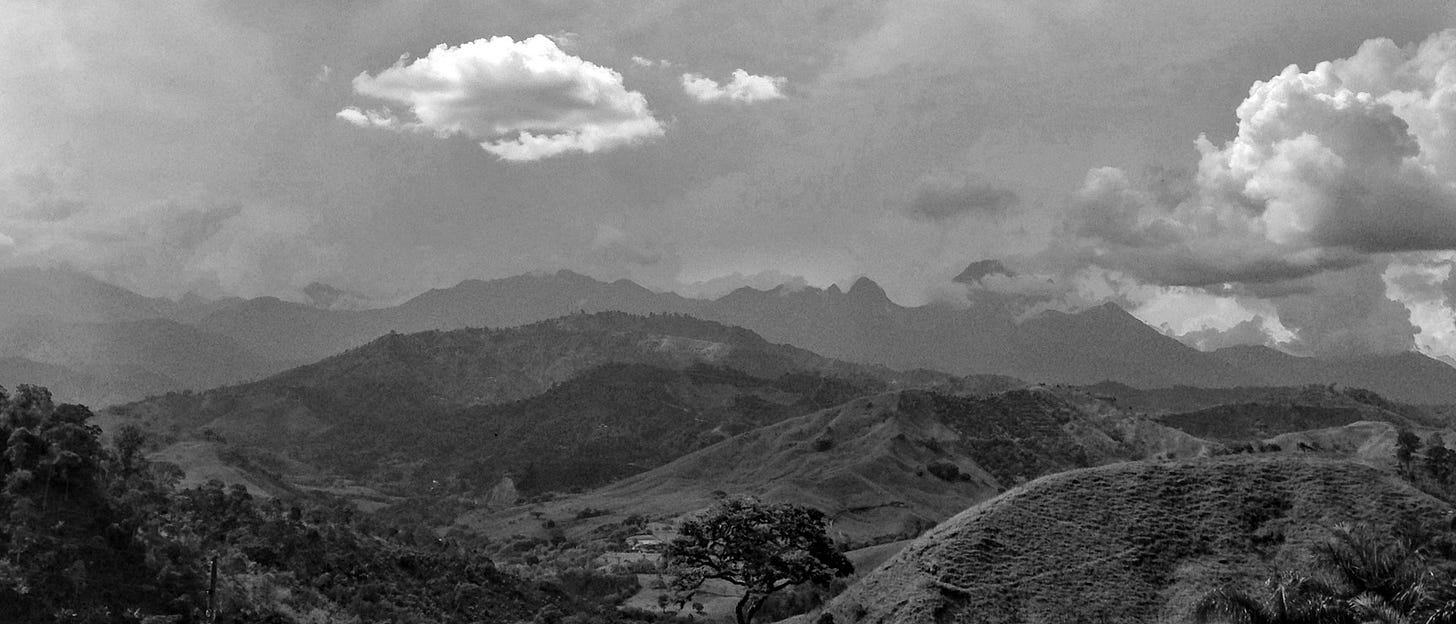Coffee News Roundup: Week Ending July 16th
This week, Spyhouse Coffee is acquired by a private equity-funded "collective", plus lots on the climate crisis & coffeewashing. Also, a new study says coffee might help protect against COVID-19.
Hello and welcome to this week’s Coffee News Roundup.
Before we begin, a quick note: the Roundup will be going on hiatus for a bit, as will The Pourover on Instagram. I need a break, basically, after doing this every week for about four years (and somehow posting on Instagram every day since then).
If something big happens, or I find something I want to write about, you might see a new post (Twitter will keep updating with news stories, if that’s your thing). Otherwise I’ll be back in a while, refreshed and (hopefully) reinvigorated.
And with that, to the news!
Fairwave Acquires Minneapolis-Based Spyhouse Coffee Roasters - Via Daily Coffee News
In the fall of 2020, baristas from Spyhouse Coffee Roasters went on strike and tried to unionize, claiming unsafe working conditions due to COVID-19. The union drive failed, but during the push Spyhouse’s ownership offered to sell the business to its employees, something the unionizing baristas called “a real stunt”.
Now that the union drive has failed, it seems like Spyhouse’s owners got their wish to rid themselves of this troublesome coffee company, because this week it was announced that Spyhouse has been acquired by Kansas City, Missouri-based Fairwave Coffee Collective.
And here’s where it gets interesting (at least to me). Fairwave Coffee Collective announced itself last September with what Daily Coffee News calls the “commingling” (merger?) of Kansas City-based coffee companies The Roasterie and Messenger Coffee, and is backed by the private equity firm Great Range Capital (also from Kansas City).
“We do not want to see local brands of coffee disappear or be squashed down by national brands,” Fairwave Holdings CEO Dan Trott told Daily Coffee News at the time. “We’ve created this opportunity for other local brands… to be a part of this. So that’s where it is a collective.”
Using the term “collective” is what gets me, because while the ownership of Fairwave Holdings does include various founders and ex-owners of the companies that were acquired, it’s majority owned by a private equity firm. Do the employees get a say in how the collective is run? Probably not. It appears they’re using the term very loosely: Daily Coffee News reported that “the collective structure is likely to result in some efficiencies for operational aspects such as warehousing and transportation.”
With the increased financial pressure of the pandemic and aggressive expansion by national brands, perhaps this “collective” structure is a sustainable way forward for the specialty coffee industry. Or perhaps it’s just marketing fluff to cover a series of mergers and acquisitions by a private equity firm that sees a gap in the market.
More Headlines
Ditta Artigianale Partners With Hario And More To Open Coffee School In Former Monastery, Florence
Honduras Cup Of Excellence Yields 25 Winners With Six Reaching 90+
Help Fund Queer Wave Coffee’s Cafe Dreams
Coffee And The Climate Crisis
Sprudge this week took a deep dive into how climate change is impacting coffee production. They look at the ways a heating planet will push farms higher up mountains and away from the traditional “coffee belt”, which will in turn cause more deforestation as land is cleared for agriculture. They discuss the way increased temperatures and increasingly unpredictable weather patterns can affect the fragile coffee plants’ growing patterns and lead to more threats like coffee leaf rust. And they look at how the low-paid migrant workforce who harvest the majority of our coffee could be forced to relocate because of natural disasters and extreme weather.
It’s a great piece, and a good primer on the subject, but it’s worth noting that most or all of this is already happening. As far back as 2018, the Ethiopian government was encouraging producers to move their farms uphill in order to “help mitigate some of the climate change pressures Ethiopia faces.”
As for unpredictable weather patterns and increased temperatures, just look to Brazil: record drought and sudden frosts are impacting coffee growing and pushing up global prices. Last year’s back-to-back hurricanes Eta and Iota devastated farms across Central America and parts of South America, while coffee leaf rust is already an issue in places it wasn’t before, with researchers blaming the changing climate.
And of course, climate migrations have already begun, with this piece from 2019 in the New York Times discussing coffee producers in Honduras who have abandoned their farms to seek a new life in the United States.
The point here is that these effects are happening right now, and the people who grow, harvest, and process the coffee we all love are the ones being impacted right now. So what can be done? In Vice this week, a piece on the coffee shortage and rise in prices ended with this quote from Dr. Rachael Garrett, assistant professor of Environmental Policy at ETH Zurich:
“Farmers get very little money, they have very low agricultural productivity, and a majority of the profits are going to companies downstream. You can do a lot of good to offset climatic change by actually redistributing who gets more of the profit and supporting those farmers in improving agriculture.”
The Week In Corporate Coffeewashing
Here’s a headline that basically sums up this coffeewashing section: “Starbucks Japan Announces Three Circular Sustainable Programs, Plans To Open 2000 Stores By 2024”.
It perfectly encapsulates the way big companies operate in regards to sustainability and their environmental impact: First, they announce some sort of nice-sounding program, in this case Starbucks Japan introducing “three circular strategies to reduce its waste footprint and positively impact local communities.” A new menu using locally-sourced ingredients, a program to recycle coffee grounds and tumblers, and a cup sharing program. Great, all good things, right?
But also, they announce their intention to keep expanding and opening new stores in Japan, up to 100 per year until 2024. Even if, as the story suggests, Starbucks plans to transition its freestanding stores to 100% renewable energy, those 100 new stores per year will use a lot of resources to outfit, not to mention all the waste they will produce once they’re operational.
But you can’t stop expanding, right? Growth at all costs, and then launch some small sustainability programs to make your company look “green”.
Is Coffee Good For You?
Well, according to new research from Northwestern University and reported on by Sprudge, “those who drank two to three cups of coffee daily were associated [with] a 10% decreased risk of becoming ill due to the coronavirus, ‘even among some individuals who were known to have been exposed.’”
COFFEE PROTECTS AGAINST COVID-19! screamed the headlines in various tabloids, but of course it’s not quite that simple. We’d probably have heard more about it if it were. The study looked at 40,000 participants in the UK Biobank and compared their dietary habits against UK COVID-19 exposure estimates. They concluded that, in those who drank two to three cups of coffee per day, “an immunoprotective effect of coffee against COVID-19 is plausible and merits further investigation.”
It’s important to note that the study participants’ dietary habits were self-reported, the research didn’t show a causal link, and the scientists themselves caution that their results “warrant independent confirmation.” They also found that eating vegetables and being breastfed as a baby lowered the risk of developing COVID-19, and regularly eating processed meats increase the risk. So there’s that.
What To Read
Frost Hits Brazilian Coffee Lands, Extent Of Damage Not Yet Known by Jonas Ferraresso
Can The Black Rifle Coffee Company Become The Starbucks Of The Right? by Jason Zengerle
Until next time, drink good coffee and, as always, tip your barista.






